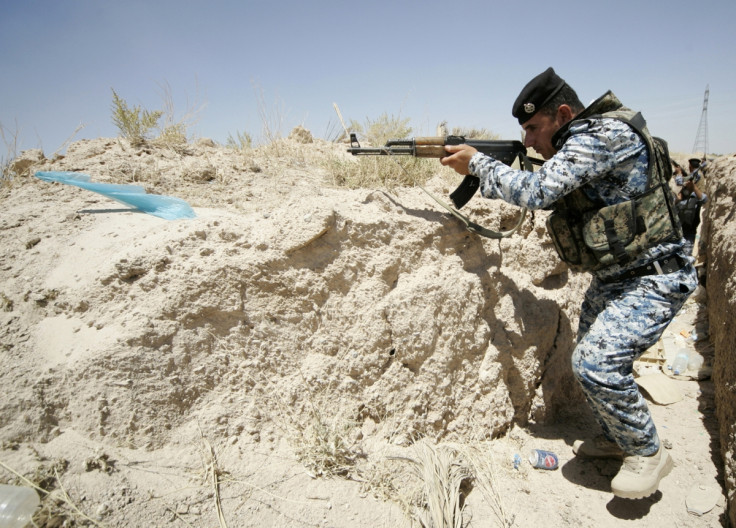Iraq Isis Crisis: Is Jordan Next?

The swiftness of the Sunni insurgency in Iraq has raised fears that it could spill into neighbouring Jordan, which has always struggled to contain its own home-grown jihadists.
In the latest developments, militants from the Islamic State of Iraq and the Levant (Isis) seized the Turaibil crossing with Jordan along with the al-Walid crossing with Syria after government forces pulled out.
On the Jordan/Iraq border, a reporter from the German news agency DPA reported sighting a mobilisation of troops, tanks and missiles.
Residents of #Jordan border town Ruweished report mass mob of tanks, missiles along #Iraq border as Tirbil crossing falls to ISIL #الاردن
— Taylor Luck يوسف لاك (@Taylor_Luck) June 23, 2014
In a video released on YouTube, five of the group's Mujahideen pledged to take the holy war to Jordan and Lebanon, fostering experts' fear that Jordan could be Isis' next target. The group was originally founded and led by a Jordanian-born Islamist militant, Abu Musab al-Zarqawi, who declared alliance to Osama bin Laden's Al-Qaeda network in the aftermath of the American-led invasion and occupation of Iraq.
Isis see Jordan's Western-backed King Abdullah as an enemy and in a video posted on YouTube they threatened to "slaughter" him. Some jihadis who appear in the video were Jordanian citizens who tore up their passports in front of the camera.
Oraib Rantawi, head of Amman's Al-Quds Centre for Political Studies, told AFP that "only the ignorant or those in denial would think that Isis does not have supporters in Jordan".
"How do they explain the presence of 2,000 Jordanian jihadists in Syria and Iraq?"
In another worrying development, dozens of supporters of Isis rallied in Maan, in southern Jordan, marking it the first public appearance of the jihadist group in the country. The Jordan Times reported that some 60 supporters rallied with black banners of Isis chanting "Today Iraq, tomorrow the caliphate", referring to the group's ultimate goal to establish an Islamic proto-state in the Levant. Participants also chanted: "The caliphate is coming to Jordan."
"The organisers of this rally were misguided and do not represent the Salafist movement or any jihadist group," said Mohammad Shalabi, or Abu Sayyaf, leader of the Jihadi Salafist movement in Jordan."There is no Islamic State in Jordan."
The march was organised by the recently established Islamic State-Jordan, a group formed by 200 former and current Isis fighters devoted to "recruiting and raising support" for the group".
Maan is considered the hotbed of Jordan's jihadist movement and al-Qaeda's ideological base in Jordan, according to Jordan Times
The gravity of the situation was also signalled by US president Barack Obama, who warned that the jihadists' militant offensive could spread to other countries.
"That could spill over into some of our allies like Jordan," he said in an interview Sunday on CBS television's, "Face the Nation".
Mohammed Abu Rumman, a researcher at the University of Jordan's Center for Strategic Studies, said Isis support in Jordan was growing.
"It is dangerous and this should make the Jordanian authorities concerned," he told AFP.
"These developments impose big security and strategic challenges on Jordan. It is a nightmare."
Stratfor, a global intelligence firm, said Isis is "intent to expand into Jordan follows the region's geopolitical logic".
"After its push into Iraq, and already controlling significant swathes of Syrian territory, the jihadist group can try to push into the kingdom... Jordan is the only opening available to ISIL," Stratfor said on its website.
However, it added that the Jordanian regime is more stable than Syria and Iraq and its security forces more effective. Jordan has also the strong backing from the United States and Saudi Arabia.
Jordan's information ministry said the country was "monitoring the crisis with great concern". "Jordan's army has enhanced security measures on the border," he said.
© Copyright IBTimes 2025. All rights reserved.




















